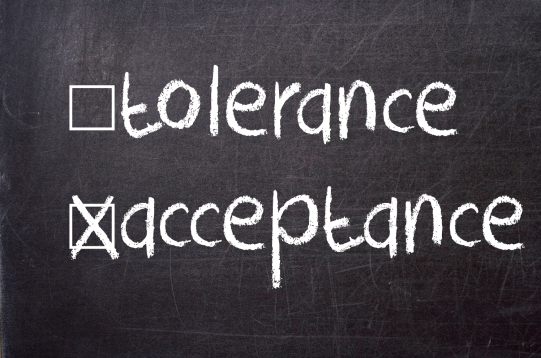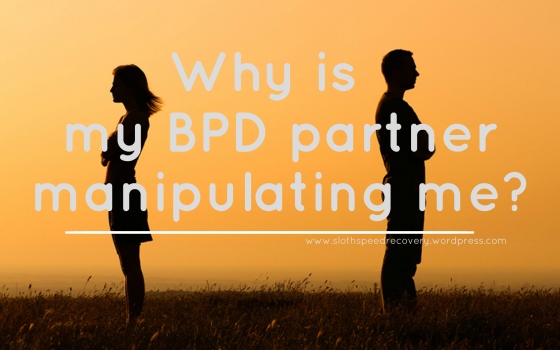
It is necessary to state that not all diagnosed BPD patients are the same. Most statements will resonate with the majority of diagnosed individuals, but not all. Every experience differs, and all of our pasts and paths are diverse. These are very common and basic statements about the disorder.
What is Borderline Personality Disorder?
Borderline Personality Disorder, otherwise known as BPD, is a serious mental illness characterized by the inability to regulate emotions. Some common traits or symptoms  include:
include:
- Fear of abandonment
- Unstable interpersonal relationships (with idealization and devaluation)
- Identity disturbance and low perception of self-worth
- Impulsive behaviours (risky sex, drugs, overspending, etc)
- Self harm and suicidal tendencies
- Reactive and difficulty controlling emotions, especially anger
- Emptiness
- Paranoia and disassociation
Borderline Personality Disorder has acquired plenty of negative connotations over the years, with some mental health professionals reluctant to treat it based on the intensity of the patient’s threats, reactions and, sometimes, lack of desire to get better. Some people who have associated with individuals diagnosed with BPD may not understand and, within discussions regarding the topic, furthering the stigma.
As diagnosed BPD individuals, we are not perceived positively. People tend to avoid us because of our intense emotions and emotional episodes. As much as we may try to explain ourselves, we are often misunderstood or not taken seriously. We may desperately try to express our distress to you, without knowing how to go about it. Some of us don’t quite understand our disorder yet and may not know that our explosive or sensitive reactions are distinguished in this disorder, thus having no capabilities to explain ourselves to you.
Explaining our behaviours by stating we have Borderline Personality Disorder is an explanation, not an excuse.
I Hate You, Don’t Leave Me

We find it very complicated to be in a stable relationship, seeing as our life patterns demonstrate someone loving us, remaining for a while and then abandoning us. We push and shove in response to our overwhelming emotions, trying to abandon you before you are able to abandon us. We constantly fear being left by the ones we love and we find it more beneficial to our emotional stability if we do it first. We convince ourselves that the blame cannot be put on us, even though we recall our behaviour later on and blame ourselves for causing you to leave.
We cannot live with you or without you, and it is a constant battle in our minds. We try to deduct whether it’s more beneficial to have you in our lives or not. At times, we think we have our mind made up, until we realize we want the opposite minutes later.
Think of the old concept introduced to kindergartners; “boys bully you because they like you.” (Extremely sexist, but wait for it.) BPD can sometimes make us act like those little boys. We do not have the means to express our affection to you, nor do we comprehend it, thus we violently lash out. We get the most violent with the ones we love and appreciate the most. It’s awful to say, but if we are treating you like this, we probably love you very, very much. We blame you for the potency of our emotions, and being loved is out ultimate fear. In response, subconsciously, we will cuss and push you away until you leave.
Emotional Instability, Intensities and Outbursts
A main symptom of the disorder is emotional instability and mood swings. As much as we may try to control our emotions, they always seem just past arms’ length. We go from ecstatic to depressed in moments, and it can leave us utterly exhausted. We struggle with the maintenance of any particular long term emotion; contentment can last a few hours and it can be followed by exaggerated anger.
In response to the ferocious mental storm, we violently react with outbursts and painful statements. We can become physically abusive as well as emotional and mental, trying to spike you with similar pain that we feel. Our outbursts can be brief or elongated, lasting up to a few hours. The extreme emotional implications can even lead us to self harm or a suicide attempt.
Sensitivity and Overreacting
It is no secret that we are on the more sensitive side of the spectrum of people. A comment you make that someone else could disregard or be caught off guard can drive us into a frenzy. Our sensitivity is heightened along with our emotions and, though what we are hurt by may seem silly to you, it is very real and traumatizing to us. There are events and situations that we will not forget because of their extreme sensitivity content and the overload we felt.
An empty comment can be spun out of context with our skewed perception of reality, assuming you’ve observed a trait in us you don’t like, or we aren’t attractive enough, etc. and even if what we heard is not what you had said or what you intended, we create our own reality to make it true.
In retort, we may lash out or bawl, taking an extreme stance, and though it may seem like overreacting, it is valid to us and comprehensible. We felt so hurt by something and our only ability to cope is to lose it in one way or another.You may perceive it as unnecessary but it is our process for coping and we require love and support. In these times, we are in need of an apology and comfort from you.
Boredom and Emptiness

Borderline is often unstable, with periods of highs and lows, and some switching quickly between the two. It keeps us very busy, I’m sure you can imagine. We are so encompassed in this constant whirlwind that, when it calms down, suddenly we are hit with boredom.
Boredom often gets misinterpreted in our minds as depression or sadness, and can evidently lead to self harm and suicidal behaviours. The stillness leads our thoughts in a negative direction, and the self-deprecating notions become repeated in our minds, woven one over the other. (“You’re useless.”, “You’re lazy”, “You never stop wasting your time.”) When nothing is going on and we are chaos free, we are unsure as to what we should do with ourselves, and we can sense a great deal of emptiness and dissatisfaction. Without being kept busy with a hobby, we misinterpret the boredom and the intensity escalates until we lose control and have an episode. We want to have that time and those feelings filled with activities that work our minds and keep our thought process busy. Without occupying the thought process, we can quickly become consumed by our own self hatred and low self esteem.
Relationship Struggles
The inability to maintain a stable relationship is very common. These relationships can be family oriented, friendships and romantic or sexual relationships.
A thing to remember is the sensitivities and intensities felt by an individual diagnosed with BPD; any comment made gets held to heart, whether it’s kind or mean. Your opinion is held at high standard and can make or break the individual’s day/week/month/year.
Being in a relationship, we often assume we will be left, being a common pattern we have been exposed to. We assume it is a life pattern that will always follow us, and instead of riding the waves, small or large with you, we subconsciously push you away and leave you before you can leave us. In our mind, it is a way to break the pattern; “you can’t leave me if I’ve already left you”. Any stillness in the relationship is perceived as boring and can somehow be misinterpreted by you not meeting our needs or not understanding us, or even not loving us enough. We have not been exposed to much relax and thus, do not have much experience with coping with it, but we do know chaos and roller coasters. In our inability to cope, we will take you for that ride down the slope.
We desperately want to have a happy relationship but we are not always in control, and to be loved. We face episodes where our mouthes and emotions completely disconnect from our morality and usual conversations. We do not want to hurt you, but we are terrified of being loved. It’s a foreign concept in our minds. We try to keep ourselves together but we loosen at the seams and become explosive. And at times, in our angry episodes, we want you angry too, because then we aren’t alone and you, too, are taking the roller coaster ride with us.
Despite the chaos and rides we will take you on, and as silly as it may sound, we do it because we love you.
Skewed Perception of Reality
Though reality is altered from one person to the next, most people are still living within the facts or slight exaggeration of them. With BPD, our reality is concentrated on emotions and fears. For example, if we are scared you will abandon us, we will act as if it is current and live in that chaos. Or, let’s say we feel ugly, we may assume that our loved ones believe it and torment ourselves to not feel this way. And if our fears aren’t real enough, we create them and make them reality.
Our perception of reality is often skewed and can confuse our surroundings. Though we may not be psychotics, we may have delusions and paranoia. They may not be the commonly known heard voices as seen in schizophrenics and patients with psychosis, but they alter our sense of reality and fog the facts.
Our assumptions can go from being just that and escalate to being “reality” as we associate clues and events to our prejudged conclusion. All of our clues, though inaccurate or unrelated, soon become the full reason or description for a situation.
A misheard sentence from your mouth can make us frantic; you may claim you said one thing but we heard another, and it wasn’t a good thing. Suddenly, we believe it; we have proof and evidence that it is all true and you meant what we thought we heard.
Identity Crises

We lose touch with who we are in the process of understanding our disorder, mental illness and wanting to be someone entirely different. We may label ourselves as BEING the disorder or change from one type of person to the next. We act like chameleons and study our peers to be accepted and wanted by them. We perceive fitting in as a sense of validation and self worth. Some individuals will be entirely different when they are at home, compared to work, compared to with a romantic partner. We study and dictate what we want to put on show for specific people, trying to find a way to integrate and not be left.
We discern our being as unlovable, dictated by the demonstrations in our past, and we cannot imagine anybody loving us for our true selves, not to mention the chaos that is this disorder. We will hide behind as many masks and in as many costumes so that you may not break that barrier and unleash us out of our comfort zone. We would prefer putting our best traits on display.
Self Harm, Suicide and Threats
A common lead to diagnosis is self harm and suicidal tendencies. Many adolescents get diagnosed before they are deemed able to be diagnosed because of this, mixed with unstable teenage emotions that worsen in stages of puberty.
Self harm is our expression of the overwhelming emotions that overtake our bodies and minds. It is our way of physically creating our pain; painting it out, if you will. Self mutilation is not just the act of cutting, it also includes:
- Burning
- Starvation/Bingeing/Purging (Disordered Eating behaviours)
- Scratching
- Suicide attempts
- Overdoses
- Illegal and recreational drugs
- Alcohol
- Trichotillomania/Dermatillomania (and other Body-Focused Repetitive Behaviours)
- Etc.
Some of us do it to feel alive, others for control, on impulse, or to scare. (Whether a person is doing it to scare or for any other reason, it is still valid and still dictates a problem, just a different type of problem. In the end, it is still self mutilation, which is unleashing physical pain onto ourselves to cope with emotions.)
It is important to not judge the individual for this expression. It is a maladpative coping strategy and eventually grows to be addictive, as the acts release endorphins, tricking our brains. For the time being, it does work. It isn’t healthy, nor is it worth it, but the individual may have not come to that realization yet. Without desire to recover, it is still recognized as functional by the one self mutilating. Prying and trying to stop the behaviour can worsen the outcome, leading them into intense emotions where they feel they may have to do it again to find release.
Trying to be understanding and supportive, offering positive coping strategies, hobbies, routine and helping to create a coping kit with them can guide them on the right path. It will take a lot of time, but the diagnosed BPD patient must eventually learn to self regulate and should be granted years for this process.
Though we may not be trying to kill ourselves by using these negative coping strategies, they can have negative repercussions. The beahviours can become quite severe and may require medical attention, which is important to seek out when needed. The emotions we feel can escalate drastically, requiring us to get stitches or getting our stomach’s pumped, and should be supervised. It is important to ensure all wounds are kept clean and are covered to avoid STDs and other blood transmitted diseases.
Suicide attempts and threats should be taken very seriously, but it is very crucial to note that mental health professionals prefer to avoid hospitalizations for us and so, we can be left on our own. Many of us do not properly use hospital stays properly, often getting involved in other people’s problems or becoming aggressive with staff, feeling the assistance is unhelpful, and disrupting other people’s stays. It is a very sad truth, and we may be turned away when requesting to be hospitalized for these reasons. (It is also very important to recognize that being turned away can spiral emotions downwards, and skewing their perception of reality. They may think “Well, if they don’t think I’m suicidal enough, I’ll prove it.”, and this can be a very dangerous thought process. Ultimately, it is preferred to avoid trying to get hospitalized, which will lessen the trauma.)
The threats can be made to express great deal of distress and serious desire to take one’s life, and it can also be to scare and receive sympathy from loved ones and medical attention. The emotions are intense, and we may threat when they have escalated passed our capacity of withholding them. To us, it is very real. We truly believe we are ready to take our own lives, and though it may be a threat and we may not fully act upon it, our feelings are serious and can lead to the act if overwhelmed.
They will need extra support and will require professional attention from a counselor or therapist who is knowledgeable in Borderline. Offer support, do not fall into stigma and try to be understanding of the chaos.
It is a Disorder but we are NOT Hopeless

Though this is a long lasting disorder, we CAN recover. The recovery path consists of self regulation and understanding. We must practice mindfulness and positive coping strategies to keep ourselves in line. We are not entirely in control of the behaviours; they are just learned patterns. The treatment of Dialectical Behavioral Therapy will offer us the tools to acquire that content and stable life.
A popular choice for those who cannot afford, nor find a professional or service that specializes in DBT can look into the Out of Control; DBT CBT Workbook, which offers diagrams, activities and simple explanations to many, if not all, common Borderline Personality Disorder behaviours. The tools must be continuously practiced, or relapse is inevitable to occur.
Many will give up on us, but I can assure you that if you stick around to watch us get better, you will not regret it. One day, we will know peace, stability and even happiness, as long as we work hard at it.




































 include:
include:





